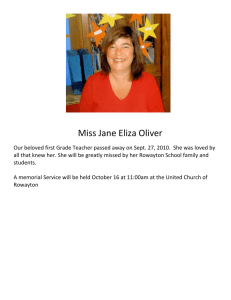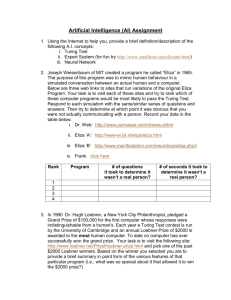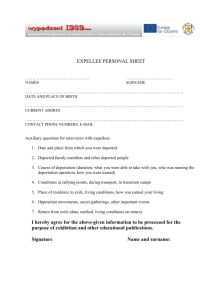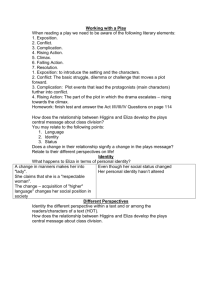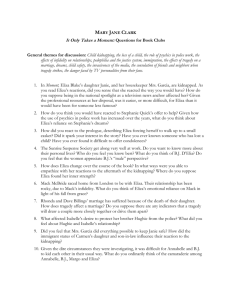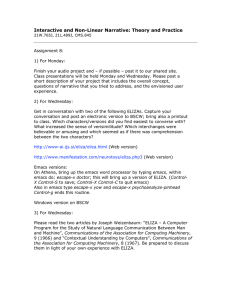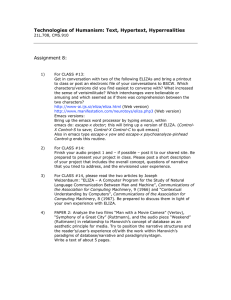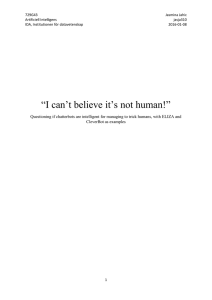DEPORTEE RECEIVES RARE PERMISSION TO RETURN TO U.S.
advertisement
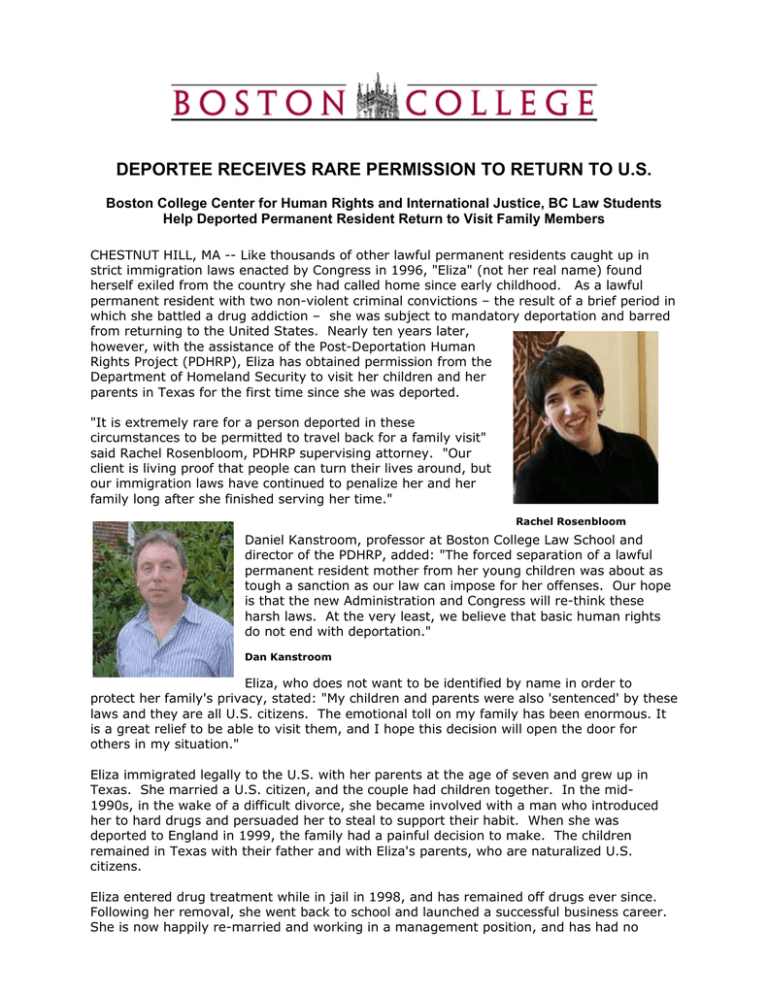
DEPORTEE RECEIVES RARE PERMISSION TO RETURN TO U.S. Boston College Center for Human Rights and International Justice, BC Law Students Help Deported Permanent Resident Return to Visit Family Members CHESTNUT HILL, MA -- Like thousands of other lawful permanent residents caught up in strict immigration laws enacted by Congress in 1996, "Eliza" (not her real name) found herself exiled from the country she had called home since early childhood. As a lawful permanent resident with two non-violent criminal convictions – the result of a brief period in which she battled a drug addiction – she was subject to mandatory deportation and barred from returning to the United States. Nearly ten years later, however, with the assistance of the Post-Deportation Human Rights Project (PDHRP), Eliza has obtained permission from the Department of Homeland Security to visit her children and her parents in Texas for the first time since she was deported. "It is extremely rare for a person deported in these circumstances to be permitted to travel back for a family visit" said Rachel Rosenbloom, PDHRP supervising attorney. "Our client is living proof that people can turn their lives around, but our immigration laws have continued to penalize her and her family long after she finished serving her time." Rachel Rosenbloom Daniel Kanstroom, professor at Boston College Law School and director of the PDHRP, added: "The forced separation of a lawful permanent resident mother from her young children was about as tough a sanction as our law can impose for her offenses. Our hope is that the new Administration and Congress will re-think these harsh laws. At the very least, we believe that basic human rights do not end with deportation." Dan Kanstroom Eliza, who does not want to be identified by name in order to protect her family's privacy, stated: "My children and parents were also 'sentenced' by these laws and they are all U.S. citizens. The emotional toll on my family has been enormous. It is a great relief to be able to visit them, and I hope this decision will open the door for others in my situation." Eliza immigrated legally to the U.S. with her parents at the age of seven and grew up in Texas. She married a U.S. citizen, and the couple had children together. In the mid1990s, in the wake of a difficult divorce, she became involved with a man who introduced her to hard drugs and persuaded her to steal to support their habit. When she was deported to England in 1999, the family had a painful decision to make. The children remained in Texas with their father and with Eliza's parents, who are naturalized U.S. citizens. Eliza entered drug treatment while in jail in 1998, and has remained off drugs ever since. Following her removal, she went back to school and launched a successful business career. She is now happily re-married and working in a management position, and has had no involvement with law enforcement – not even a speeding ticket – since her arrival in England. Still, U.S. law has forbidden her to visit the U.S. even temporarily, to see her children and parents. Although Eliza's children have visited with her in the summers, they have longed for her to see their school and meet their friends. She will now be able to do so. The U.S. government has given Eliza a "single-entry" tourist visa. State Department guidelines provide that the Embassy, having recommended one waiver, should continue to recommend such waivers for Eliza in the future unless her circumstances change, so she can now look forward to visiting on a regular basis. The Post-Deportation Human Rights Project, based at the Center for Human Rights and International Justice at Boston College, is a pilot program designed to address the harsh effects of current U.S. deportation policies. The Project, in which Boston College Law School students represent clients under attorney supervision, aims to conceptualize an entirely new area of law, providing direct representation to individuals who have been deported and promoting the rights of deportees and their family members through research, policy analysis, human rights advocacy, and training programs. ###
